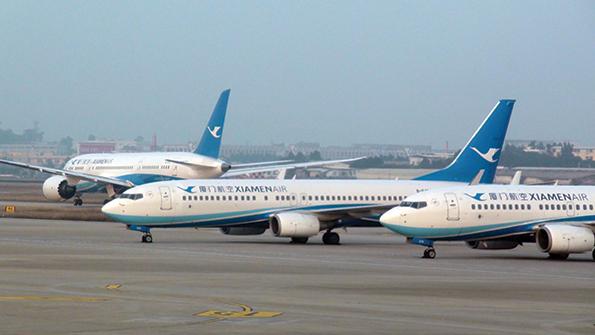COVID-19 Coronavirus Outbreak Could Be Catastrophic For Some Airlines

The air transport industry has had a phenomenal 10 years. It has been growing fast, far more rapidly than the global GDP to which it is normally linked. Some even contended that cyclicality is a phenomenon of the past because the growth phase was much longer than previously experienced. Some in the industry, mainly U.S. airlines, started to actually make proper money, and Airbus and Boeing managed to build up order backlogs of unprecedented sizes.
The idea that cycles no longer exist has always been a myth. Instead, the industry is in the middle of the deepest crisis in decades, deeper than what it experienced during the fallout of the Severe Acute Respiratory Syndrome (SARS) outbreak in 2003 and 2004. Partially hampered in its ability to grow by the grounding of the Boeing 737 MAX fleet since March 2019, then bruised by a U.S. policy-induced slump in global trade, Asia-Pacific airline revenues are now predicted to fall off a cliff.
The effects of the COVID-19 coronavirus outbreak are severe, manifold, complex and could be catastrophic for some airlines. They overlap, contradict and sometimes complement the MAX crisis—an aircraft whose absence, ironically, is turning out to be beneficial to airlines desperately trying to shed capacity.
Notably, signs of crisis were visible months before COVID-19 became an issue. “The first half of 2019 saw strong and repetitive stress signals for the major international Chinese airlines, more severe than previously thought, most likely attributable as an impact of the U.S.-China trade conflict,” Philipp Goedeking, the managing partner of airline consultancy Avinomics wrote. “Hong Kong airlines were additionally hit by the fallout of the protests in Hong Kong. Corona strongly amplified but also masked these factors.” He pointed out that weekly seat capacity in China actually peaked in October 2019, well before the outbreak.
Even two months into the COVID-19 crisis, no one can accurately predict the true dimension of the economic consequences for the airline industry and its suppliers. The International Air Transport Association (IATA) has made its first estimates, modeling assumptions on the pattern from SARS. That assumes COVID-19 will be under control relatively fast and that confidence in travel revives as quickly, as fear of travel has reduced demand. For that scenario to become a reality, progress in containment has to be made soon—in the next 1-2 months at the latest.
Even assuming COVID-19 will follow the SARS precedent, its consequences are much worse. In 2003, Asia-Pacific traffic declined 5.1%. IATA says it could fall by 8.2% in 2020. Seventeen years ago, Chinese airlines operated less than 900 aircraft. They now have a combined fleet of more than 4,000, leading to a much bigger impact in terms of absolute numbers. IATA assumes global air traffic could fall by 0.6% this year, the first time the industry is not growing since the 2008-09 global financial crisis.
In China, the flight reductions have been extremely dramatic. Due to lack of demand, the airlines have suspended most scheduled flights this month. On Feb. 19 they expected to operate 6,300, or 34%, of the 18,300 flights in their schedules, according to local data agency VariFlight. Five Chinese airlines were not operating. That number has varied day to day in February.
“We continue to believe it will take at least one year for [Chinese market] traffic to rebound,” wrote Helane Becker, a senior research analyst with Cowen. “We have some reports that suggest it will take at least 18 months for traffic to return to normal.”
This is an abbreviated version of an article by Jens Flottau, Sean Broderick, Bradley Perrett and Adrian Schofield that first appeared in Aviation Week & Space Technology. Subscribers can read about the impact the coronavirus outbreak and MAX grounding has on airlines like Hainan Airlines and Qantas, as well as lessors in the full article.